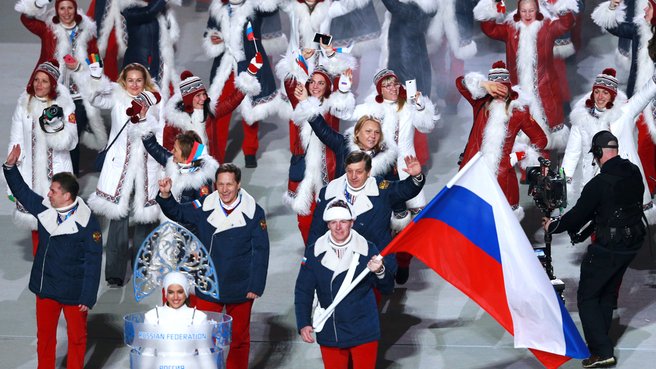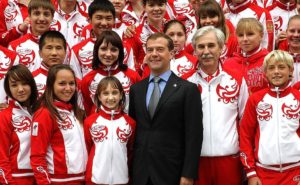

The four year ban imposed by anti-doping agency WADA will see Russia miss the 2020 Olympics and the 2022 football World Cup.
Russia have received a four-year ban from all major sports events from the anti-doping agency WADA, which will see them miss the 2020 Olympics and the 2022 football World Cup.
It is currently not clear how the penalty will play out as the decision is not yet enforceable. Ilya Viharev, a sports commentator for Russia’s Myudm TV said: “In my opinion, the recent WADA sanctions are fair. This is not the first time when Russia deceived the world sports community”.
The Russian Anti-Doping Agency RUSADA have now lost their certificate, but have the opportunity to appeal to the Court of Arbitration for Sport (CAS) within 21 days.
RUSADA were investigated in January 2019 after manipulating laboratory data. This occurred after a warning from WADA, ensuring Russia were clear of the consequences of handing in lab data that was tampered with.
Viharev believes the new sanctions will be detrimental to Russia’s reputation in sports: “The reputation of Russian sport, which has been already tarnished, is now completely destroyed. The only way out of this situation is to accept all the WADA conditions and follow them honestly.”
Viharev states that that him, the experts and athletes he managed to speak to believe that all of the problems were Russia’s own fault.
However, the WADA sanctions will not necessarily apply to all Russian athletes. Individual athletes who can show they have nothing to do with RUSADA can still participate under a neutral flag. The Russian national anthem will not be played in the occasion where it normally would.
Despite agreeing with the sanctions, Viharev also felt the punishments were “quite harsh”.
“It could have been worse if all Russian athletes, even those who have never been involved in doping scandals, were banned to participate in any international competitions.”
Viharev thinks that participating under a neutral flag is something Russian athletes may be getting used to. “At the Olympics in PyeongChang, Russian athletes participated in a neutral status and won a lot of medals. Russian people rooted for them and were happy for their victories.”
He continues: “Although before the Olympics, some of so-called patriots expressed that Russian athletes had nothing to do at the Olympics without the national flag.”
Viharev goes on to state how this, for some athletes, is their only opportunity to participate in a big championship. He adds that if athletes are deprived the opportunity it could “literally ruin their lives. Athletes themselves must decide whether or not to take part in competitions.”
The punishment can be harsh, and some will lose their opportunity to participate, but Viharev says that the next important step is to ensure that Russia is not completely isolated from the community, “so that young athletes could see the light at the end of the tunnel and have perspectives.”
This penalty will not affect the European Championships in football 2020, as the sanction does not include certain continental and regional events.

